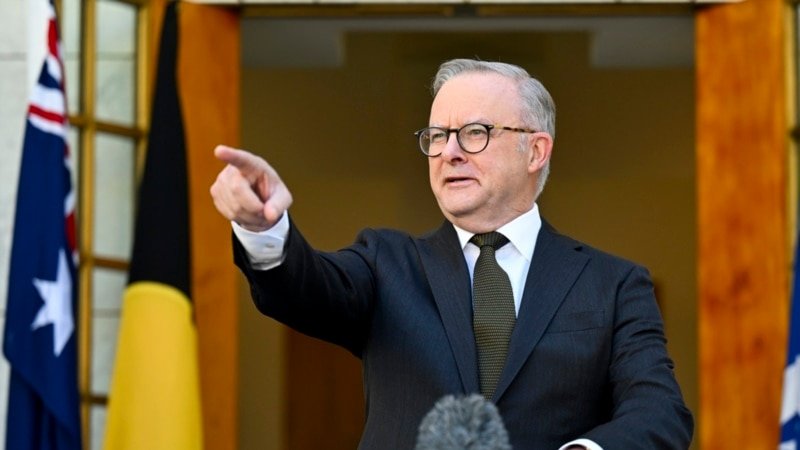
Australia announced Friday it will pay for more police in the Solomon Islands and build a police training center in the South Pacific island nation’s capital, Honiara, where Chinese law enforcement trainers are already based under a bilateral security agreement with Beijing. .
Prime Minister Anthony Albanese said Australia would spend 190 million Australian dollars ($118 million) over four years on funding and training new recruits to the Royal Solomon Islands Police Force with a package that would “reduce any need for external support.” “
“My government is proud to make significant investments in the Solomon Islands police force to ensure they can continue to take primary responsibility for security in the Solomons,” Albanese told reporters in the Australian capital, Canberra.
Albanese and his Solomons counterpart, Jeremiah Manele, said in a joint statement on Friday that the package would build a sustainable security capacity in the Solomons, “thereby reducing its dependence on external partners over time.”
Australia has been actively pursuing new bilateral security deals with its Pacific island neighbors after Beijing and the Solomons signed a security pact due in 2022 under Manele’s predecessor Manasseh Sogavare.
That deal has raised fears among US allies, including Australia, that the Chinese Navy would be allowed to build bases in the strategically important Solomons.
Albanese’s Labor Party, which was in opposition at the time of the agreement’s signing, described it as Australia’s worst foreign policy failure in the Pacific since World War II.
Australia recently signed security agreements with Papua New Guinea, Tuvalu and Nauru that effectively give Canberra veto rights over any security deals those countries want to make with third countries, including China.
Asked whether the new agreement would require the removal of the Chinese security presence from the Solomons, Albanese did not answer directly.
“Of course the Solomon Islands is a sovereign nation. They have some measures in place and we hope they continue,” Albanese said.
“As a result of this agreement, we have ensured that Australia remains a preferred security partner,” he said.
Mihai Sora, a Pacific islands expert at the Lowy Institute, a Sydney-based international policy think tank, said the agreement was “a clear victory for the Solomon Islands, which has given its law and justice sector a much-needed boost.”
“But Solomon Islands has not committed to reducing the essentially permanent rotating presence in the country of about 14 Chinese police trainers, who have been running their own parallel training program with Solomon Islands police since 2022,” Sora said in an email. Are.”
Sora said, “Therefore, this agreement amounts to less than a concrete strategic commitment from the Solomon Islands to Australia, and there is no indication that it will derail China-Solomon Islands security relations.”
Blake Johnson, an analyst at the Australian Institute for Security Policy, a Canberra-based think tank, said Chinese policing in the Pacific gives Beijing tools to control Chinese migrants and pursue other goals.
“Sometimes they can be too harsh in their response. There are also concerns about data and privacy risks associated with Chinese policing the region,” Johnson said.
“Sometimes they’re providing surveillance equipment. There are concerns about what it’s being used for and what it’s capturing,” he said.